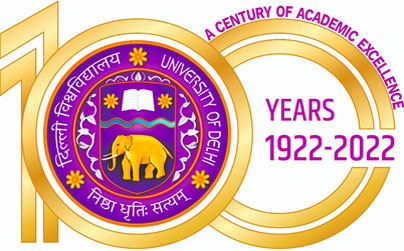VAC 1: GANDHI AND EDUCATION
Credits
2
Lecture
1
Tutorial
0
Practical/Practice
1
Eligibility criteria
Pass in Class 12th
Pre-requisite of the course
NIL
The Learning Objectives of the course are:
- Seek inspiration from Gandhi's thoughts on education.
- Analyse Gandhian education philosophy for moral and character development.
- Understand Gandhi's Idea on Self-reliant education (Swavalambi Shiksha}
- Relate Gandhi's educational thoughts to NEP 2020
The Learning Outcomes of the course are:
- Value Gandhian perspective on education
- Appreciate the significance of education in Indian languages
- Evaluate the application of Gandh ian thoughts in NEP 2020
- Realise the principles of NEP 2020 in vocational and skill oriented education.
UNIT- I : Gandhi's Philosophy and education (5 Weeks)
- Gandhi's Philosophy on education
- Education for character building and moral development
- Education relating to health, hygiene, heritage, and handicraft
UNIT- II Gandhi's Experiment in Education (5 Weeks)
- Gandhi's educational ideas on use of Indian Language as a medium of Instruction, TextBook and Teacher.
- Gandhi's educational thought on Elementary and Adult Education.
- Gandhi's vision on Higher Education
UNIT- III : Gandhi's Educational Thought on Skill and Vocational Education (5 Weeks)
- Rural development through Skill and Local Need Based eaucation
- Skill education in NEP 2020 and Gandhi
- Gandhi's Idea on Self-reliance (Swavalambi Shiksha) and its reflection in contemporary educational policy.
- Regular visits to Gandhi Museum and library to gain insight on Gandhi
- Excursion to Gandhi Ashrams located in different places like Sewagram, Wardha, Sabarmati, Ahmedabad etc.
- Workshops/projects in collaboration with Gandhi Bhawan, Gandhi Smriti and Darshan, Gandhi Peace Center. Ashrams based on innovation in village & cottage industry, Khadi, handicrafts, organic farming etc.
- Adoption of one place for Swachhta Mission or Skill Education
- If required, students can share their experiences in the form of a Project Report.
- Any other Practical/Practice as decided from time to time
- Anand T. Hingorani, ed.] Gandhi, M.K. Our Language Problem (Bombay:
- Bharatiya Vidya Bhavan, ), pp. 53-55
- TOWARDS NEW EDUCATION written by M . K. Gandhi Edited by Bharatan Kumarappa
- Coomaraswamy, Anand K. (1910}. Art and Swadeshi. Munshi Ram Manoharalal. Delhi
Examination scheme and mode: Subject to directions from the Examination Branch/University of Delhi from time to time


